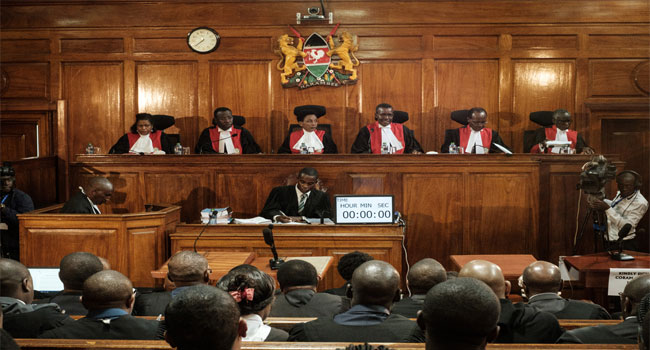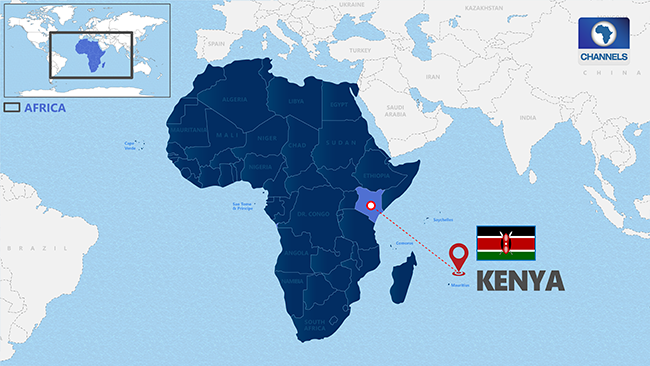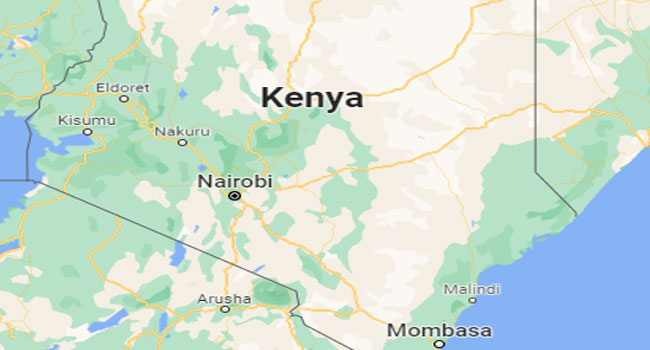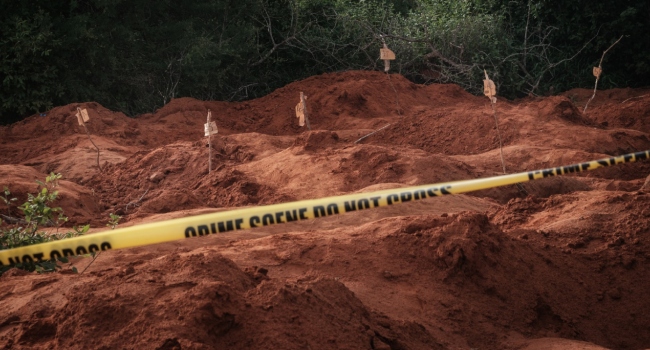
Kenya’s Supreme Court on Wednesday began hearing two petitions to annul last month’s presidential election, which was already a re-run ordered by the court after it annulled an earlier vote.
The court hearing is the latest in a long and winding legal drama that has surrounded Kenya’s election process since an August 8 election was annulled by the Supreme Court due to “irregularities and illegalities”.
Two petitions were filed to overturn the result of a re-run on October 26 that was won by President Uhuru Kenyatta with 98 percent of the vote, amid a boycott by his rival Raila Odinga.
The court consolidated the two petitions, one filed by former lawmaker and businessman John Harun Mwau and another filed by International commission of Jurists (ICJ) Njonjo Mue and director of Muslims for Human Rights Khelef Khalifa.
Lawyers for Mwau argued that the Independent Electoral and Boundaries Commission (IEBC) should have conducted fresh nominations ahead of the vote.
Meanwhile Julie Soweto, representing Mue and Khalifa, argued that violence and intimidation and lack of independence of the IEBC — whose own chairman claimed he could not guarantee a free and fair election — meant the poll was not in line with the constitution.
“As a country we stand at the edge of a cauldron of uncertainty,” she told the court.
“This court must ask itself if such an election conforms to spirit and intent of the constitution,” she added, referring to Kenyatta’s 98 percent victory.
A third petition which sought to declare Odinga and other leaders of his National Super Alliance (NASA) coalition guilty of electoral offences for boycotting the poll, and inciting their supporters for violence, was delayed due to the strict timeline for the petitions to be heard.
The six judges, led by Chief Justice David Maraga, have until Monday November 20 to deliver a ruling.
Maraga was thrust into the spotlight after annulling the August 8 vote, a decision hailed worldwide as a chance to deepen Kenyan democracy, and an example to other nations on the continent.
Instead the decision led to chaos and acrimony, leaving the nation bruised and deeply divided.
After being declared the victor, Kenyatta conceded his victory was “likely to once again be subjected to a constitutional test through our courts”, adding he would submit to such a process “no matter its outcomes.”
Odinga vowed the election “must not stand”.
His coalition has formed a “resistance” wing which has called for economic boycotts of certain companies and has said it will hold protests and other forms of civil disobedience.
Both NASA and Kenyatta’s ruling Jubilee had asked to join the petitions as interested parties, but their request was denied by the court.
AFP



